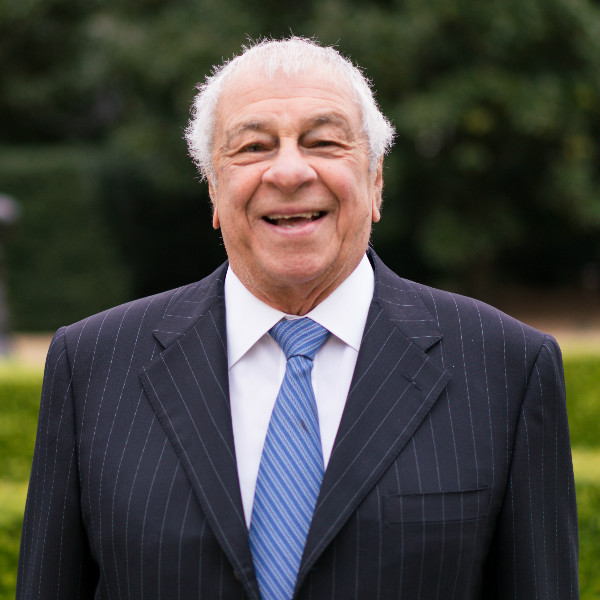
Los Angeles businessman and Keck School of Medicine Board of Overseers Member Selim Zilkha recently reaffirmed his commitment to the Keck School center that bears his name with a $5 million gift. The donation will support the Zilkha Neurogenetic Institute (ZNI) and will be used for recruitment of senior scientists and investigators to the institute.
Zilkha’s interest in neurogenetic diseases is a personal one: his mother and eldest brother suffered from Alzheimer’s disease for years.
The Zilkha Neurogenetic Institute was established in 2003 with a $20 million gift from Zilkha. The ZNI is a six-story, 125,000-square-foot building on the Health Sciences Campus, housing 20 researchers who develop therapeutic strategies to attack a multitude of debilitating neurological and psychiatric disorders faced by millions worldwide.
“The research that we’re doing at the Zilkha Neurogenetic Institute is research on brain diseases that are not rare—Alzheimer’s disease, schizophrenia, bipolar disorder, autism, depression, anxiety disorder. These are disorders that are affecting almost one in three families in the United States,” said Pat Levitt, director of the Zilkha Neurogenetic Institute, provost professor of neuroscience, psychiatry, psychology and pharmacy, and chair of the cell and neurobiology department.
Zilkha’s new gift establishes the Zilkha Senior Scholar Award, which will provide funding to offset the cost of recruiting esteemed investigators who have dynamic, grant-funded research programs that focus on specific brain diseases, including Alzheimer’s disease, brain cancer, and neurodegenerative and psychiatric disorders.
The scholar award will be leveraged with university commitments to bring the scholars to the ZNI. The funds provided through the senior scholar award will offset costs for equipment, research staff and trainees, and the like, which are needed to attract the best and brightest minds in the field of translational neuroscience, according to Levitt.
“This pledge of $5 million is transformative for a number of reasons,” said Levitt. “We will be able to use those dollars to leverage with university funds and other philanthropic funds to be able to recruit senior scientists who already have research programs in Alzheimer’s disease, schizophrenia and autism up and running at other institutions. We want to bring them to the Keck School of Medicine of USC to be able to multiply the efforts that we already have ongoing.”
